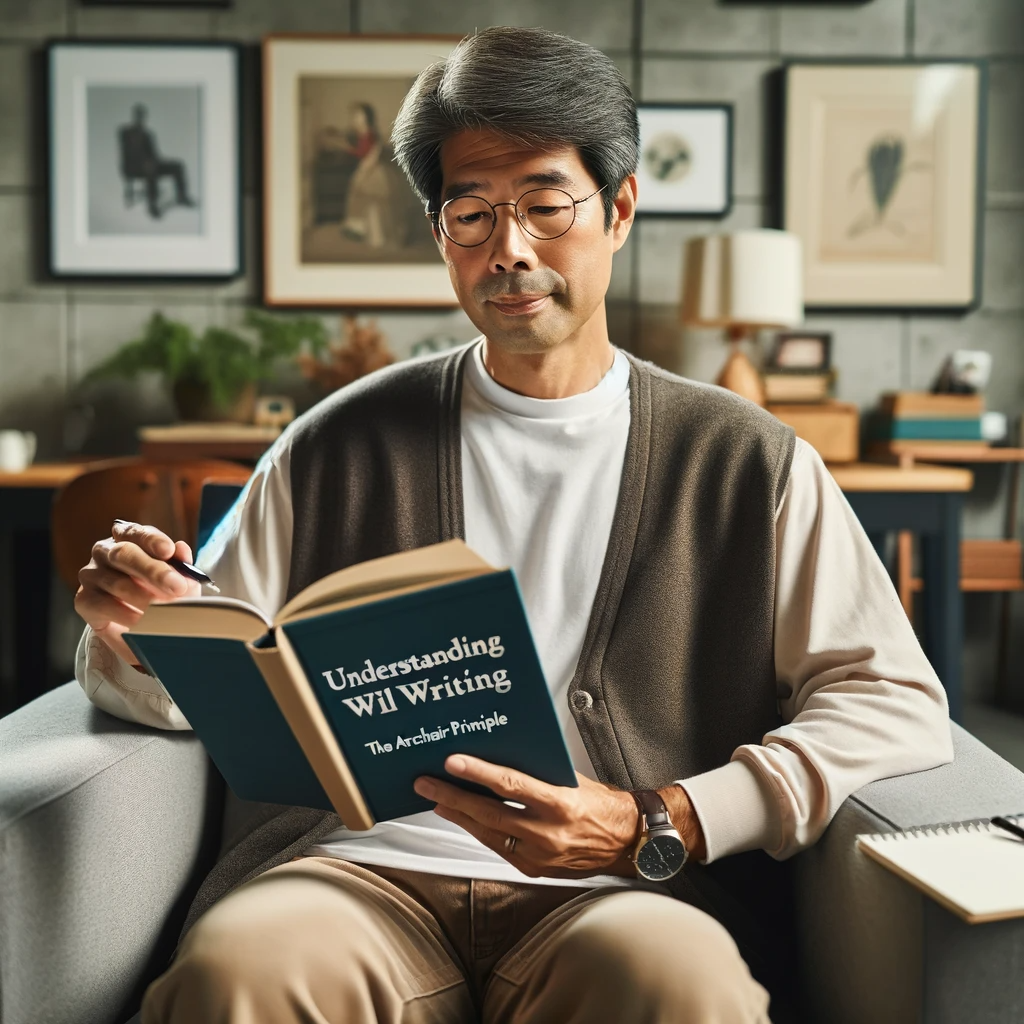The “armchair principle” or “armchair rule” is a legal doctrine applied in the interpretation of wills. This principle is invoked when there’s ambiguity in a will, and it directs the court to put itself “in the testator’s armchair” to understand the testator’s intentions better.
The main idea behind the armchair principle is to give effect to the testator’s real intentions rather than the literal wording of the will. This involves considering all relevant external evidence, such as the testator’s relationships, circumstances, property, and more, to discern what the testator likely meant, especially in cases where certain terms or provisions are unclear.
For instance, if a testator left a property to “my nephew John,” but had two nephews named John, the armchair principle might be applied to understand which “John” the testator had in mind by considering the relationships, past events, or other relevant factors.
It’s a valuable doctrine because it seeks to uphold the true intentions of the deceased rather than letting potential oversights or ambiguities disrupt those intentions. However, its application may vary by jurisdiction and specific legal standards. If you’re dealing with a situation where the interpretation of a will is at stake, it’s essential to consult with legal professionals familiar with the estate laws in the relevant jurisdiction.
Does it comply with Malaysia Wills Act 1959?
The Malaysia Wills Act 1959 provides provisions concerning the creation and validity of wills in Malaysia. The Act sets out the fundamental requirements for a valid will, including the age requirement of the testator, the necessity for the will to be in writing, and the requirement for witnesses.
The “armchair principle” is a general rule of interpreting wills and not specific to any particular legislation. While the Malaysia Wills Act 1959 provides for the basic formality requirements and certain rules for the interpretation of wills, the armchair principle is more about understanding the intentions of the testator when there is ambiguity. This principle has been recognized in various common law jurisdictions, and given that Malaysia follows the common law system, it’s likely that the principle can be applied by Malaysian courts when interpreting ambiguous terms in wills.
However, for a specific interpretation or application of the “armchair principle” in the context of Malaysian law, or to understand how it has been applied in specific Malaysian cases, you’d need to consult with a Malaysian legal professional or refer to detailed legal commentaries or case law specific to Malaysia.

WillsMalaysia has partnered with Nirvana Asia via Yankee Life Planning Advisory through their online platform Central Funeral Care to offer comprehensive Pre-planning and Legacy planning services. This partnership aims to provide a seamless and thoughtful approach to end-of-life planning, ensuring peace of mind for members and their families. WillsMalaysia members qualify for a cash gift when you signup with Nirvana Asia via Yankee Life Planning Advisory. To learn more about our partnership of care click here.


I wonder how often this principle is actually used in Malaysian courts. It seems like a sensible approach to resolving ambiguities in wills
Interesting read! Never knew about the armchair principle. It’s reassuring to know that the courts try to honor the real intentions behind a will.
This makes me think about how important it is to be clear when writing a will. Don’t want my family guessing what I meant!